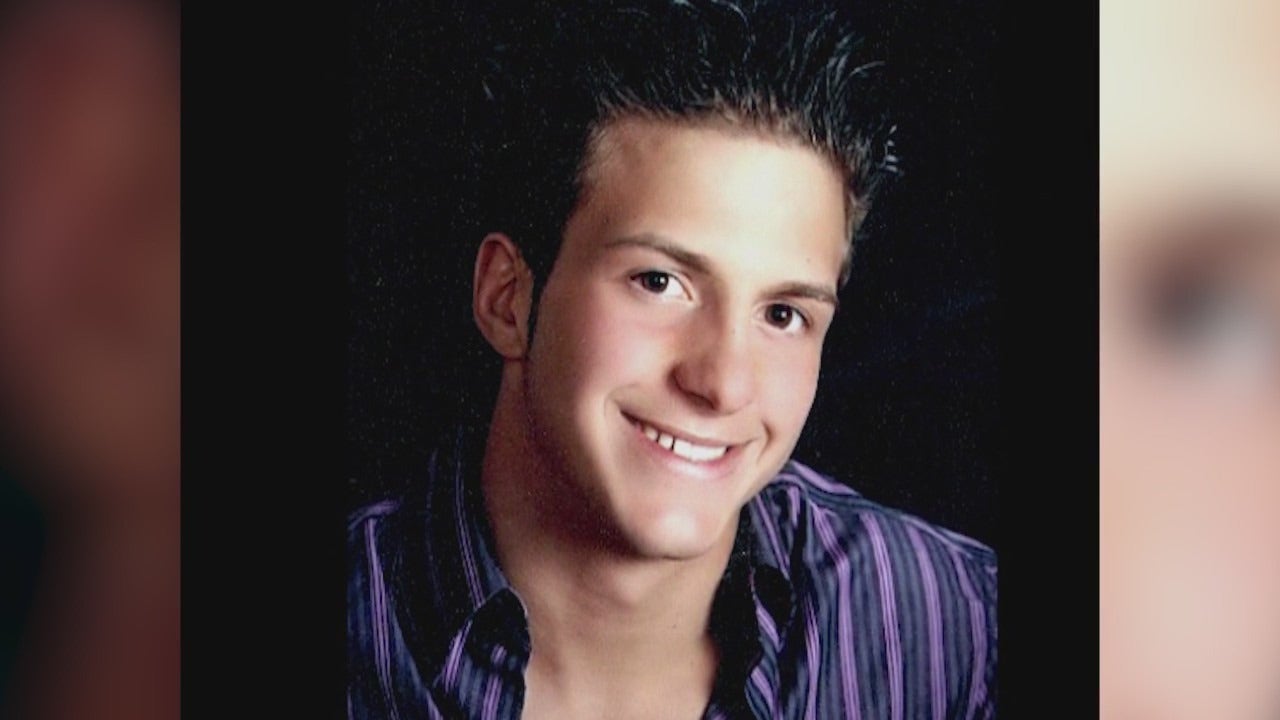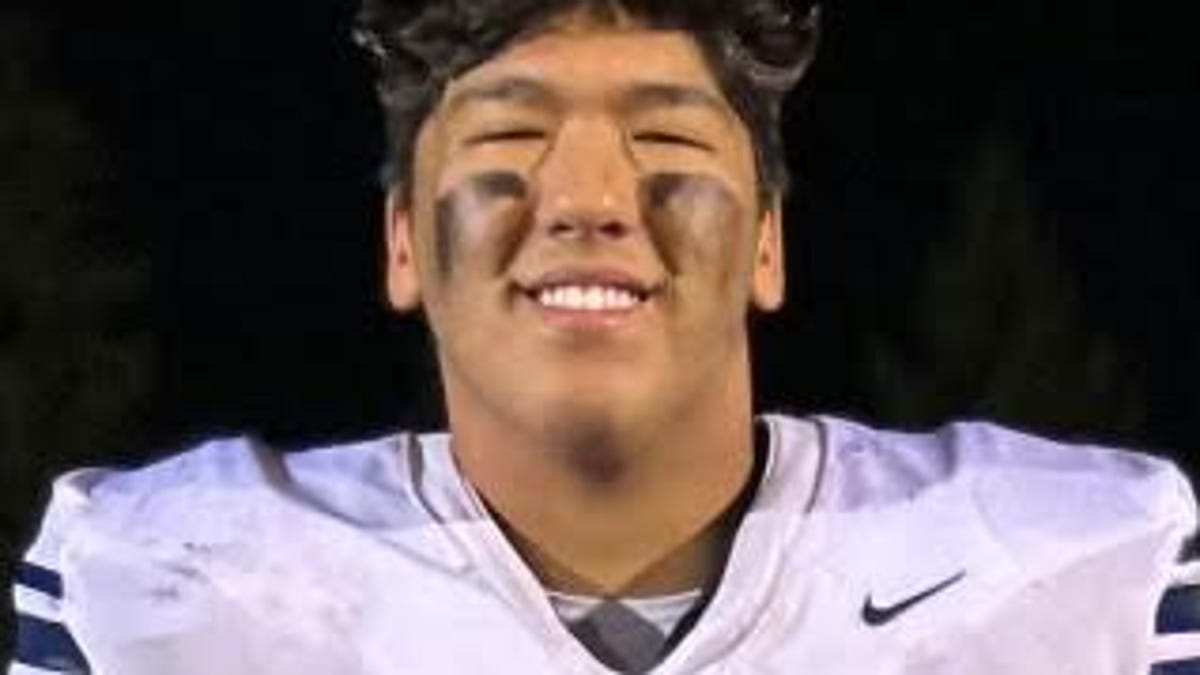Illinois
Louie’s Law: Illinois legislation sets new standard for drug education in schools

Louies Law: Legislation sets new standard for drug education in Illinois schools
For years, the primary approach to teaching kids about drugs was to “just say no.” Now, a new Illinois law signed this summer is expanding that method.
CHICAGO – For years, the primary approach to teaching kids about drugs was to “just say no.” Now, a new Illinois law signed this summer is expanding that method.
When Felicia Miceli shares her story online, she is not only talking about losing her son to a drug overdose in 2012, but also a new law that’s named after him.
“I know it will change a lot of people’s lives,” Miceli said. “It really encompasses everything I’ve felt and wanted people to know. And it can reach so many more people instead of just going from school to school to school.”
Louie’s Law is a mandate for the Illinois Board of Education to create and recommend a comprehensive drug education curriculum because currently there isn’t one.
“There’s no mandated curriculums or standards. There’s the school code. The school code is enshrined into law about what public schools have to teach regarding health, regarding art, you know, whatever the subject is. So this was an amendment to the school code,” said Chelsea Laliberte-Barnes, co-chair of the Illinois Harm Reduction and Recovery Coalition.
Laliberte Barnes, a licensed social worker, co-wrote the bill with 18-year-old Kyra Jagodzinski, the coalition’s coordinator.
“It’s really just trying to keep kids safe, keeping people my age safe and happy and healthy,” Jagodzinski said. “Louie’s Law is a comprehensive evidence-based update to the guidelines that state board provides to public and private schools in the state to teach kids or to teach K through 12 students more about what drugs are.”
It will also give high school students the chance to learn how to recognize an overdose. They will also learn how to use fentanyl test strips, administer naloxone and other harm reduction steps.
“So harm reduction is pretty much everywhere once you think about it,” said researcher and psychologist Geoff Bathjie. “Requiring auto manufacturers to put seat belts and airbags in cars. Carrying an EpiPen if they know they have an allergic reaction to bee stings.”
Bathje has studied harm reduction for more than a decade. He knows it’s not something all parents are comfortable with their kids learning about.
“I think we can still send messages that we would prefer young people not to use drugs. And also for those that are already using drugs because they will also be in the room. Here are the ways you can stay safe,” he said.
Louie’s Law is a departure from previous programs that only taught students to “just say no” to drugs. That’s something Laliberte-Barnes says is a good thing.
“Of course, we don’t want young people to use. Of course we don’t. But if they’re going to, we have to keep them safe. And that’s where we’re at now,” Laliberte-Barnes said.
“So while more teens we actually know might be using less, the ones who are using are dying, and we need to be focusing on how to keep them safe, period,” she added.
The Centers for Disease Control and Prevention is reporting overdose deaths among teens 14 to 18 went up 94% from 2019 to 2020 and another 20% from 2020 to 2021.
A FOX 32 data analysis of the Chicago area found there have been just over 140 overdose deaths in the last four years involving teens and pre-teens. And while the majority of those deaths have been older teens, there were at least two cases where a 12-year-old overdosed and died.
“You can’t reverse your own overdose. So if we train somebody to use naloxone, we’re training them to save the life of somebody essentially in their social network who they might be around when they’re using drugs,” Bathje said.
“And so that’s one piece I think that parents might miss is that your kid might be around people who are using drugs. And the trauma that occurs if somebody overdoses versus if they could have easily and safely reduced that overdose and saved that person’s life,” he added.
Bathje also says research doesn’t show an increase in drug use when people learn about harm reduction.
“If anything sometimes the opposite might happen. It makes them more aware of what the realistic risks are,” Bathje said.
“The essence of harm reduction is not encouraging drug use. It’s encouraging life, it’s encouraging saving and keeping people alive long enough to get them into recovery and to get them the help that they do need,” Jagodzinski said.
Something Louie’s mom hoped would have happened for her son.
“Having something like Louie’s Law in place when Louie was going through those things. Could have definitely interceded at some very important points in his life,” Miceli said.
Under Louie’s Law, the state board of education has until July 2024 to make its comprehensive drug education curriculum available to all school districts. It’s important to note that participation is optional.

Illinois
Dupage County Forest Preserve reenacts imminent cicada brood emergence | VIDEO

DuPAGE COUNTY (WLS) — Cicadas are soon emerging across Illinois.
The Dupage County Forest Preserve is having some fun teaching people about them.
The forest preserve released a video on social media, reenacting how cicadas will emerge after 17 years.
A woman even climbs up a tree in the video, and she sheds her “exoskeleton.” In this case, it’s her jacket.
RELATED | When will the cicadas emerge? Chicago, Northern Illinois will see billions of noise-making bugs soon
After that is when cicadas show their true colors. That’s when the video starts including costumes.
The forest preserve workers dressed like bugs for the video.
One “cicada” uses a musical instrument that is supposed to represent how the males attract female mates.
READ MORE | Chicago cicada invasion 2024: What to know about these loud, unique insects
The reenactment continues with showing how the female cicadas dig into trees to lay eggs.
Copyright © 2024 WLS-TV. All Rights Reserved.
Illinois
Illinois Democrats muscle through changes to ballot access, advisory questions

Supermajority Democrats in the Illinois House moved quickly Wednesday to push through a change to state election laws that partially limits ballot access and adds three nonbinding referendums to the 2024 general election ballot.
It’s a move that caused minority party Republicans to vote “present,” then walk off the House floor without even debating the measure, while four Democrats voted against the bill that would amend ballot laws for the election cycle that is already underway.
Republicans were particularly critical of a provision that prohibits political parties from appointing a candidate to a general election ballot if no member of that party filed nominating petitions for the primary.
Statewide election referendums beginning to take shape
The minority party also criticized Democrats’ hasty movement of the proposed changes from introduction to floor passage. Rep. Jay Hoffman, D-Swansea, filed the amendment to an unrelated bill, Senate Bill 2412, Wednesday morning before it was quickly moved to committee for passage, then to the floor within hours. It now awaits action in the Senate.
House Minority Leader Tony McCombie, R-Savanna, noted at an impromptu news conference on a Capitol stairwell that the GOP has grown accustomed to legislation moving with little public notice – but it usually happens closer to the General Assembly’s end of May adjournment.
“But we don’t understand the sense of urgency right now, unless the goal – the end goal – is to stifle the democratic process through the changes on slating candidates,” she said.
At the same time the amendment was moving through the House, senators were being briefed separately on the proposed changes.
In the Senate Executive Committee, which meets one floor below the House chamber, Republican Leader John Curran, of Downers Grove, argued that changing the rules in the middle of an election cycle would be unfair to potential candidates who are operating under existing rules.
He also said such a move could add to what he called the public’s growing mistrust of the election system generally.
“There’s a lot of talk around the country about stealing elections,” Curran said. “And the faith in the democratic process has been shaken a bit around the country. I believe Illinois would be adding to that, really, national problem, if it took that step here and changed the rules midstream rather than just waiting to the next election cycle.”
But Senate President Don Harmon, D-Oak Park, noted there are other ways to get on the ballot after the primary has passed.
“A candidate who would want to run for General Assembly seat after the primary will have to run, as they can today, as an independent or a third-party candidate,” Harmon said. “They would no longer be able to appeal to the local party bosses to have them installed as the candidate of a major political party.”
Privately, GOP lawmakers said they believe the proposed change is designed to influence the outcome of one particular race this year – the 112th House District in the Metro East area, where incumbent Rep. Katie Stuart, D-Edwardsville, is running for reelection.
No Republican filed to run in that race in time for the March 19 primary, but party officials say one is currently being lined up.
Republicans believe that district is winnable for them. Stuart won reelection to that seat in 2022 by a 54-46 margin over Republican Jennifer Korte.
Rep. Lindsey LaPointe, D-Chicago, was one of the four Democrats to vote “no” on the bill Wednesday afternoon, though others skipped the vote. She said she’s not opposed to eliminating the slating process beginning in the 2026 election cycle but said doing it now is “moving the goal posts” in the “final minutes of a ballgame.”
“That’s problematic for me because as an elected official in Illinois, I’m constantly trying to rebuild trust in Illinois government and politics that many of the people I represent…don’t have,” she told Capitol News Illinois after the vote.
The measure would also pose three nonbinding advisory referendum questions to voters on the November ballot, including asking whether health insurance plans that cover pregnancy benefits should be required to cover in vitro fertilization and other fertility treatments.
That mirrors legislation passed in the state Senate last month that would require IVF and other fertility coverage for insurance plans with pregnancy benefits that are sponsored by companies with 25 or more employees.
The other questions would ask voters whether they’d favor civil penalties for any candidate who “interferes or attempts to interfere with an election worker’s official duties” and whether the state should adopt an additional 3 percent tax on income over $1 million.
The extra revenue would be collected “for the purpose of dedicating funds raised to property tax relief” – a perennial concern in a state with the second-highest property taxes in the U.S., just behind New Jersey, according to a 2023 report from The Tax Foundation.
Illinoisans were already asked a similar nonbinding referendum a decade ago, when nearly 60 percent of voters said “yes” to a question about a 3 percent tax on income over $1 million for the purposes of education, which is largely funded by local property taxes. Then-House Speaker Michael Madigan’s push for the so-called millionaire’s tax was seen as a poke at then-gubernatorial candidate Bruce Rauner, a self-funded Republican who ultimately won the governor’s race and spent his four-year term fighting with the powerful Democratic speaker.
McCombie said Republicans had offered bills aimed at property tax relief on several occasions in recent years. She and state Rep. Ryan Spain, R-Peoria, argued the referendums were a distraction.
“What you saw today was a phony attempt to solicit feedback from voters that was covering up the real intention to the Democrats’ bill upstairs, which is to eliminate competition in our elections,” Spain said.
As state law limits the number of questions on a statewide ballot to three, SB 2412 would also crowd out the possibility of any other citizen-initiated questions from making it to the ballot.
Capitol News Illinois is a nonprofit, nonpartisan news service covering state government. It is distributed to hundreds of newspapers, radio and TV stations statewide. It is funded primarily by the Illinois Press Foundation and the Robert R. McCormick Foundation, along with major contributions from the Illinois Broadcasters Foundation and Southern Illinois Editorial Association.
Illinois
Illinois Pork Producers Advocate for Industry at State Capitol – Swineweb.com – Complete Swine News, Markets, Commentary, and Technical Info


On Wednesday, Illinois Pork Producers took their message, along with some sizzling bacon, to the state capitol. Led by Jennifer Tirey, executive director of the Illinois Pork Producers Association, the initiative aimed to engage urban legislators who may lack familiarity with hog farming.
Dubbed “Bacon Day for Illinois,” Tirey emphasized the importance of educating legislators about the pork industry. She highlighted the value of personal interactions, often leading to invitations for farm tours, as legislators play a crucial role in shaping industry policies.
To enhance their message, the Pork Producers Association offered complimentary BLT sandwiches, leveraging the universal appeal of bacon to foster dialogue and celebration.
Their efforts were recognized with Illinois Senate Joint Resolution 50, officially declaring May 1st as Bacon Day in the state.
-

 News1 week ago
News1 week agoLarry Webb’s deathbed confession solves 2000 cold case murder of Susan and Natasha Carter, 10, whose remains were found hours after he died
-

 World1 week ago
World1 week agoHaiti Prime Minister Ariel Henry resigns, transitional council takes power
-

 News1 week ago
News1 week agoFirst cargo ship passes through new channel since Baltimore bridge collapse
-

 World1 week ago
World1 week agoUS secretly sent long-range ATACMS weapons to Ukraine
-

 World1 week ago
World1 week agoSpanish PM Pedro Sanchez suspends public duties to 'reflect'
-

 News1 week ago
News1 week agoAmerican Airlines passenger alleges discrimination over use of first-class restroom
-

 World1 week ago
World1 week agoAsia bears biggest climate-change brunt amid extreme weather: WMO
-

 Movie Reviews1 week ago
Movie Reviews1 week agoHumane (2024) – Movie Review

















